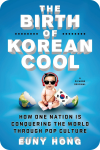Naomi, played by Emily Browning, is a young Australian woman who comes to New York for an archival internship and to otherwise experience life. Nick (Adam Horowitz)—rigidly prescribed yet somehow diffident—serves as her archival mentor. His current project involves arranging the legacy of his late father-in-law.
Nick is intent on Naomi’s above-board integration into his life. He invites her over to enjoy dinner with wife, Alyssa, (Chloe Sevigny) and sister in-law, Gwendolyn (Mary-Louise Parker). The spirit of bonhomie is quickly vanquished when they glimpse her. Yes, she is beautiful, and also self-possessed, with a sui generis wardrobe of petaled tunics, oversized blazers of academic textiles, and just-so scarves of jewel tones that suggest taste, self-care, and fantastic recommendations.
Throughout the film, Naomi vacillates between conduit and agent as she navigates her job and a new city. People are keen to remind her of possibility, but her reality is rooted in solitude and limitation—as a woman, a visitor, and a perceived novelty floating into established histories and old dynamics.
Director and screenwriter Alex Ross Perry connects different facets of Naomi’s experience with a sharp, easy touch. The cast—which also includes the always-interesting Jason Schwartzman, Annaleigh Tipton, and Lily Rabe—is outstanding, with a visceral chemistry. Gen-X has become the haunted elders, most visibly displayed by Horowitz, aka Ad-Rock of the Beastie Boys. If this film is any indication though, embattled middle-age will be a good phase for them. Most notably, Parker chews up and spits out her scenes with mesmerizing, terrifying zeal.
At the risk of focusing on the relative triviality of age, I must point out that Perry is 33 years old. This is his fifth film. Next up is the screenplay for Christopher Robin with Ewan McGregor and a reunion with Elisabeth Moss, who also starred in Listen Up Philip and the rapturously spooky Queen of Earth. He’s got the range.















